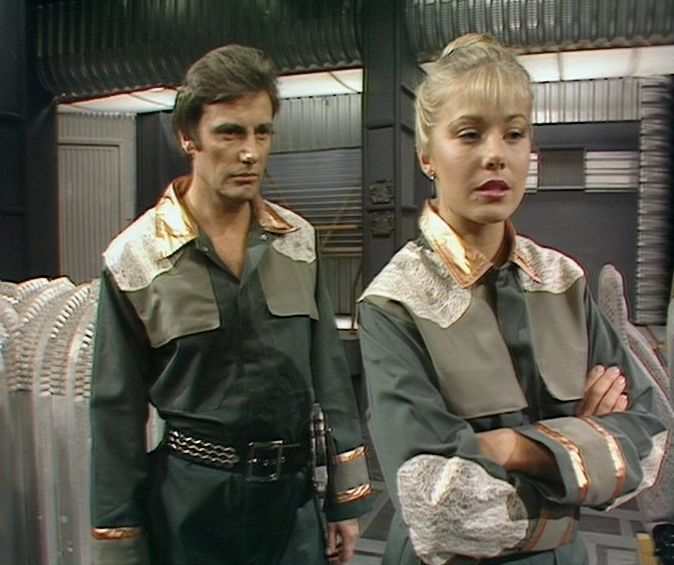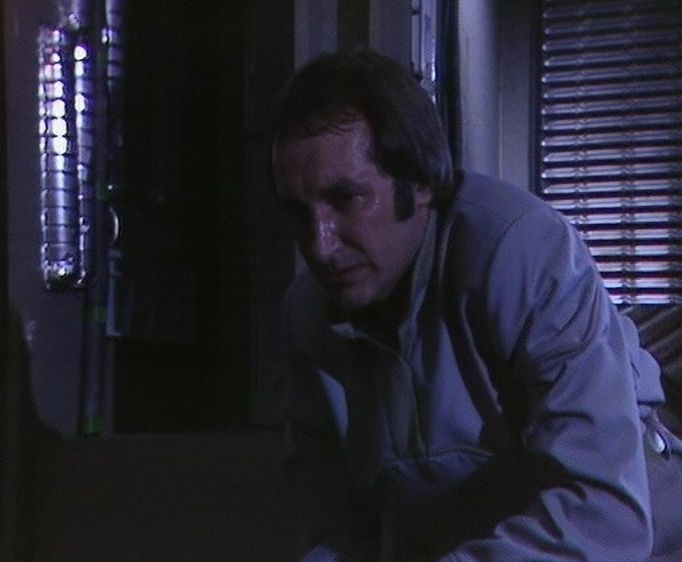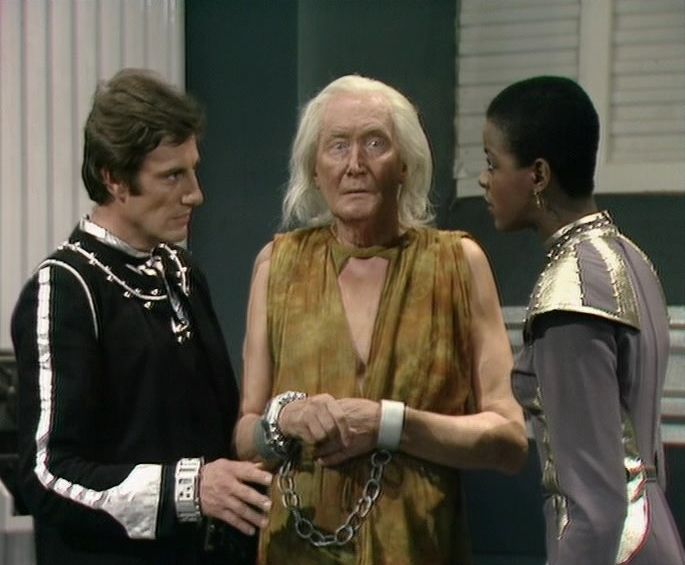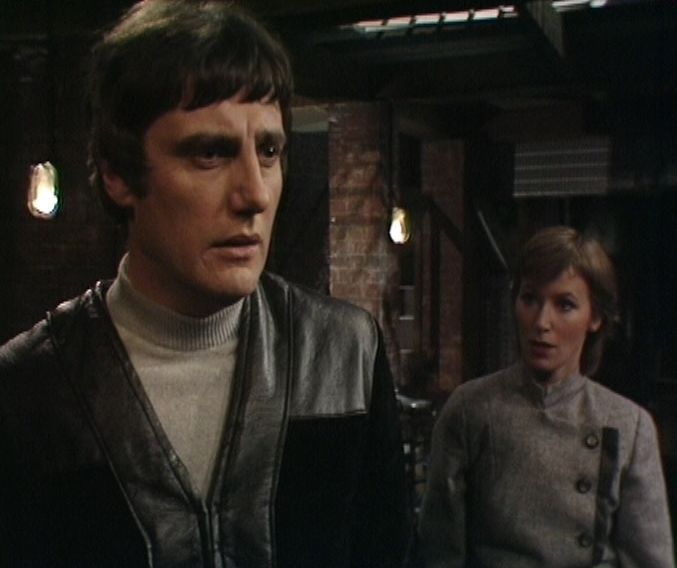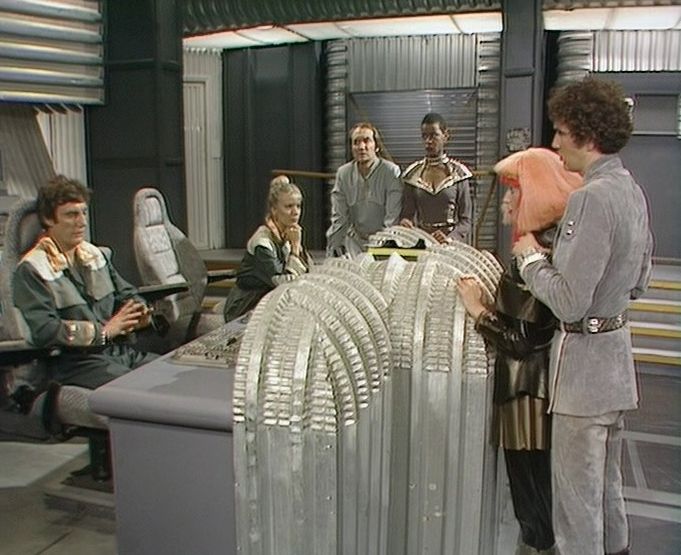
The Federation’s pacification drug, Pylene 50, continues to spread through the galaxy – affecting more and more planets. Avon calls together a number of interested parties in the hope that together they’ll be able to form an alliance. Success seems to hinge on the cooperation of the notorious warlord Zukan (Roy Boyd).
Although Zukan’s thirst for war and conquest is well known, he tells the others that he’s here in good faith and has the means to produce a toxin to combat the pacification drug. But matters are complicated after Zukan’s daughter, Zeeona (Bobbie Brown), is found to have stowed away on her father’s ship – especially since she and Tarrant have something of a history ….
Warlord has never been a terribly well regarded B7 story, possibly because of the interesting clothes and hairstyles. There’s no getting away from it, the delegates look if they’d be more at home at a fancy-dress party rather than a summit meeting which will decide the fate of the galaxy. Zukan and Zeeona also sport the most amazing haircuts, especially Zeeona who looks like a cut-price Toyah.
There’s also the Rick James problem. If you’re a Doctor Who fan then you’ll probably be aware of his idiosyncratic performance in the 1972 story The Mutants. Nearly a decade might have passed since that unforgettable turn, but James pretty much picks up where he left off – wooden doesn’t even begin to describe him. Mind you, given what he’s wearing it’s no surprise that it’s hard to take him seriously.
But if you can put all that to one side, there’s plenty here to catch your attention. After being touched upon earlier in the season, Pylene 50 makes a comeback – and in a very striking way. The opening sequence, set on the latest planet to fall to the pacification process, is an eerie and disturbing one. The population of Zondar, heavily drugged, are mown down by Federation troops, whilst all the time encouraging words (“You are cared for. You are loved”) can be heard over the tannoy. This has elements of the harder-edged vision of a drugged future seen in The Way Back (although rarely glimpsed afterwards).
After enduring defeat after defeat, it looks as if Avon’s luck has finally turned. But it shouldn’t come as any surprise to learn that Zukan’s a dirty double-crosser, secretly in cahoots with Servalan. This is where we must bid farewell to Servalan and it has to be said that she exits with a whimper rather than a bang. It’s long been debated as to why Jacqueline Pearce didn’t appear in Blake – you’d have assumed it would have been an obvious move, especially if it was known that the series definitely wasn’t coming back. We’ll touch upon this again next time, but maybe Chris Boucher and Vere Lorrimer were eyeing a possible fifth series – that would certainly explain why Servalan’s final appearance is little more than a not-terribly-interesting cameo.
Simon Masters’ script (his only effort for the series) is well tailored for most of the other regulars. Avon and Soolin carry the action, although Soolin’s proactive presence does mean that Dayna rather fades into the background. Vila spends his time drinking and seemingly avoiding Avon. A nod back to the events of Orbit maybe, as he tries to come to terms with Avon’s actions?
Tarrant spends his time making eyes at Zeeona, although just as Zukan is obviously a wrong-‘un, so it’s clear that Tarrant and Zeeona’s love is going to be somewhat on the short-lived side. Her death is an interesting moment. After learning of her father’s treachery she attempts to undo some of the damage he’s caused, but a flesh-eating virus puts paid to her. Dayna tells Tarrant that she died because she took her glove off – was this an accident or did she, wracked with guilt about her father’s actions, decide to commit suicide? Either possibility is valid. Bobbie Brown may be saddled with a silly haircut but is still rather good as the doomed Zukan.
After a run of disasters, it seems that only one man can unify them, so next time Avon sets out to find Blake. I wonder if this will be where his luck finally changes? Hmmmm …….
